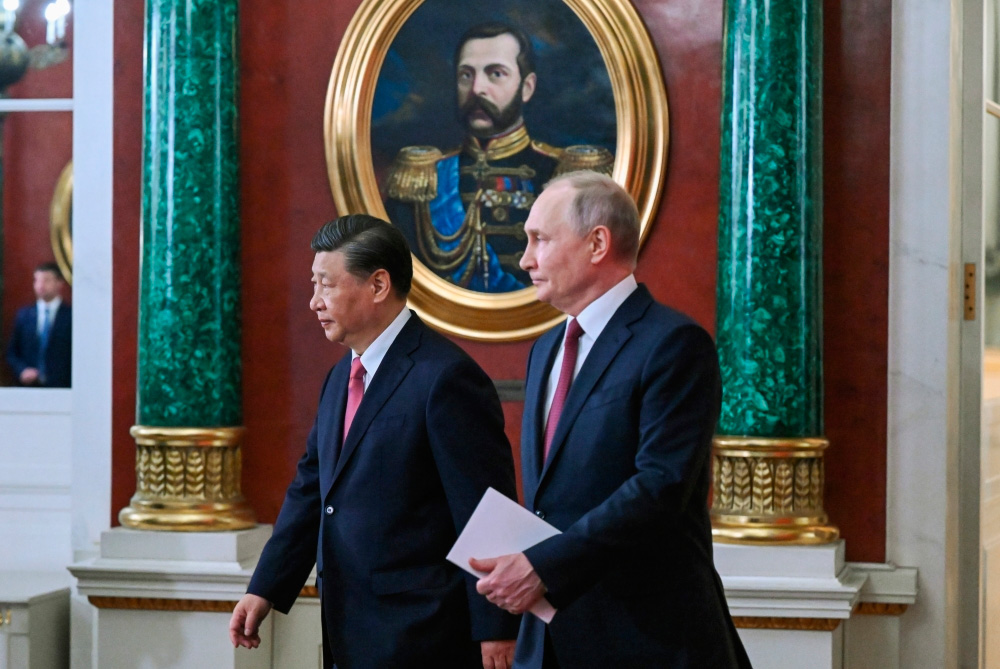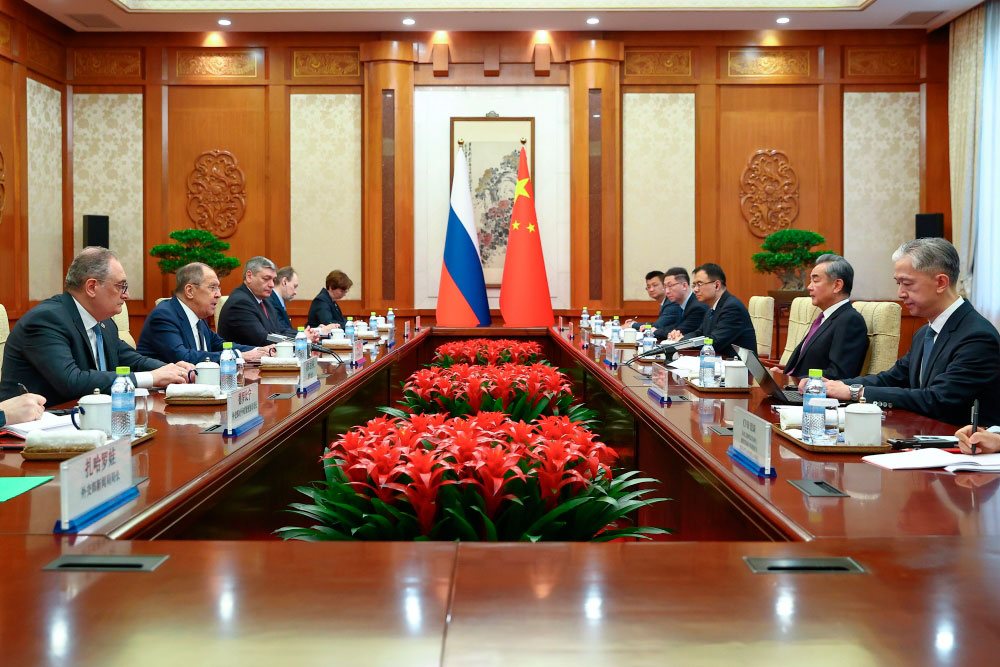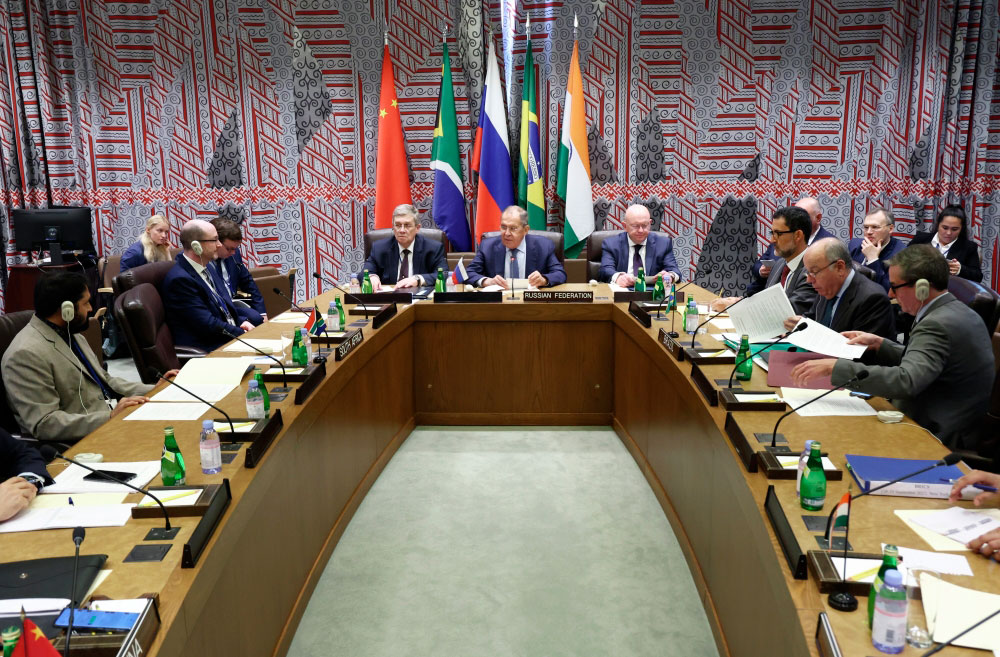In mid-May Russia’s President Vladimir Putin will fly to China on an official state visit. The trip is likely to be quite special and important. Let us outline some of the most important motivations behind the planned trip.
First, courtesy. In March of 2023, after he had been reelected as 7th Chairman of the People's Republic of China, XI Jinping chose Moscow as his first foreign destination. Symbolically, this decision underscores the importance of Beijing to the Kremlin. After having met Xi Jinping, the Russian leader may consider visiting a number of other non-Western capitals, including Ankara, Tehran and Pyongyang.
Second, bilateral relations. After the European Union had introduced its 12th package of restrictive measures against Moscow, a number of the leading China’s banks became reluctant to accept dollar payments from Russia; as a result, in March the bilateral trade suffered a mild setback of 2%. The most recent trip of US Secretary of State Antony Blinken to China in April confirmed once again that the Biden Administration will continue to complicate the Russia-China economic interaction to the extent possible. Apparently, Putin and Xi should focus on how to make sure that the United States will not succeed in its efforts and that the bilateral trade by the end of 2024 will indeed amount to USD 280–290 billion as planned.
Third, global developments. We have entered yet another dramatic year with many tragic events taking place in various corners of the world. On the other hand, 2024 also offers a number of opportunities that should not be overlooked. It is the year for BRICS to properly digest and absorb its recent enlargement, and Russia will have to manage the process chairing the club and hosting the next BRICS summit in fall. The Shanghai Cooperation Organization might also start changing by accepting Belarus as a member and exploring new opportunities for multilateral cooperation.
Fourth, frictions with the West. My feeling is that the two leaders have not quite opposite, but somewhat different views on Europe: while Putin remains highly skeptical of any ‘strategic autonomy’ of European nations from the United States, Xi apparently still hopes that Beijing’s cooperation with major European powers as well as with the European Union in general, can be preserved even if the China-US relations continue going sour. The jury is still in session on this critical question, but a candid exchange of views on Europe and on the political trends within the United States, the likely outcome of the November elections including, should constitute a significant item of the Putin-Xi agenda.
Fifth, emerging world order. It is crystal-clear that one of the key challenges for both Moscow and Beijing is about how to provide tangible global commons in a highly volatile and unpredictable world with no universally accepted hegemonic power in charge. The Russian and the Chinese visions on the desirable international transition are not identical, but they are very close to each other; it is therefore essential to discuss both converging and diverging views on major components of the emerging world order.
Sixth, human dimensions. The approaching 75-years anniversary since the establishment of diplomatic relations between Moscow and Beijing is a nice opportunity not only to stage a standard chain of public fora, cultural events, business-to-business meetings and academic conferences, but also to promote grass-roots people-to-people contacts. In particular, the two leaders are likely to pay special attention to expanding bilateral links in higher education, in R&D projects and in transborder interactions. Personally, I would like Putin and Xi to make a breakthrough on moving to the non-visa regime between the two neighboring countries.
In mid-May Russia’s President Vladimir Putin will fly to China on an official state visit. A sceptic would say that this visit is not really a big deal: the Russian leader and his Chinese counterpart, Chairman Xi Jinping had bilateral meetings at least forty times since 2013, when Xi was first elected as Chairman of PRC. The Russian President was in Beijing last time no longer ago than in October of 2023, when he participated to the high level “One belt, one road” Forum. Still, there are a couple of reasons for him to come to China again at this particular moment; the trip is likely to be quite special and important. Let us outline some of the most important motivations behind the planned trip.
First, courtesy. In March of 2023, after he had been reelected as 7th Chairman of the People's Republic of China, XI Jinping chose Moscow as his first foreign destination. This decision was duly appreciated by everyone in Russia, including even those who do not follow international affairs. Vladimir Putin was reelected as 3rd President of the Russian Federation in March of this year and it is only natural that he wants to pay back courtesy to his longtime partner and friend by going to China prior to exploring other travel itineraries. Symbolically, this decision underscores the importance of Beijing to the Kremlin. After having met Xi Jinping, the Russian leader may consider visiting a number of other non-Western capitals, including Ankara, Tehran and Pyongyang.
Second, bilateral relations. It is essential for the two leaders to compare notes on the current state of the bilateral relations that evolved significantly since their last meeting in October. 2023 turned out to be a very successful year for the Russia-China economic cooperation with the bilateral trade reaching the all-time record of 240 billion US dollars. However, the West remains firmly committed to disrupt this trend and the Western pressure on Beijing is constantly growing. Not surprisingly, the Chinese private sector is getting increasingly concerned about the scope of the likely negative impact that secondary sanctions might have on their business prospects. After the European Union had introduced its 12th package of restrictive measures against Moscow, a number of the leading China’s banks became reluctant to accept dollar payments from Russia; as a result, in March the bilateral trade suffered a mild setback of 2%. With the Chinese export to Russia going down by 14% on the yearly basis (from USD 8,9 billion to USD 7,6 billion), while the Russian export to China continued to grow and reached USD 12 billion. The most recent trip of US Secretary of State Antony Blinken to China in April confirmed once again that the Biden Administration will continue to complicate the Russia-China economic interaction to the extent possible. Apparently, Putin and Xi should focus on how to make sure that the United States will not succeed in its efforts and that the bilateral trade by the end of 2024 will indeed amount to USD 280–290 billion as planned. Summit meetings usually serve as powerful catalysts for bilateral trade and investments; let’s hope that this pattern will be confirmed once again by the forthcoming Putin-Xi summit.
Third, global developments. Those who hoped that 2024 would become a turning point in global politics shifting it from conflicts and confrontation to peace and reconciliation were bitterly disappointed: we have entered yet another dramatic year with many tragic events taking place in various corners of the world. The Russian-Ukrainian and the Israeli-Palestinian conflicts are not stopped, the Houthis continue to target military and commercial vessels in the Red Sea, Sahel countries and Sudan are simmering and can explode at any moment, global defense spending and global arms trade in 2024 reached their historic highs. On the other hand, 2024 also offers a number of opportunities that should not be overlooked. It is the year for BRICS to properly digest and absorb its recent enlargement, and Russia will have to manage the process chairing the club and hosting the next BRICS summit in fall. The Shanghai Cooperation Organization might also start changing by accepting Belarus as a member and exploring new opportunities for multilateral cooperation. Clear enough, the Russian and Chinese leaders have a lot of issues to discuss on the volatile global situation and to coordinate their reactions to swift changes.
Fourth, frictions with the West. The two leaders will definitely not omit an opportunity to talk about their nations’ respective uneasy relations with the West. By the time he meets President Putin, Chairman Xi will still be quite fresh from his trip to Paris, Belgrade and Budapest, which is scheduled for May 5–10 and is the first such tour in five years. He is likely to share his impressions with the colleague from Moscow. My feeling is that the two leaders have not quite opposite, but somewhat different views on Europe: while Putin remains highly skeptical of any ‘strategic autonomy’ of European nations from the United States, Xi apparently still hopes that Beijing’s cooperation with major European powers as well as with the European Union in general, can be preserved even if the China-US relations continue going sour. The jury is still in session on this critical question, but a candid exchange of views on Europe and on the political trends within the United States, the likely outcome of the November elections including, should constitute a significant item of the Putin-Xi agenda.
Fifth, emerging world order. The two leaders are also likely to discuss more general matters of the emerging new world order, such as the preferred role of the UN system, the future of strategic stability along with various dimensions of global and regional governance. Many specific dimensions of the new world order remain very vague and ambiguous; for instance, it is not clear what might happen to the existing nonproliferation regime, how to coordinate efforts to defeat international terrorism and to contain the reckless arms race, what can be done to enhance the efficiency of international law and so on. However, it is crystal-clear that one of the key challenges for both Moscow and Beijing is about how to provide tangible global commons in a highly volatile and unpredictable world with no universally accepted hegemonic power in charge. The Russian and the Chinese visions on the desirable international transition are not identical, but they are very close to each other; it is therefore essential to discuss both converging and diverging views on major components of the emerging world order.
Sixth, human dimensions. The trip might well produce some other positive results, which do not look really breathtaking, but nonetheless are very important not only for ordinary Russian and Chinese citizens, but for the two nations at large, because they are weaving the social fabric of the relationship. The approaching 75-years anniversary since the establishment of diplomatic relations between Moscow and Beijing is a nice opportunity not only to stage a standard chain of public fora, cultural events, business-to-business meetings and academic conferences, but also to promote grass-roots people-to-people contacts. In particular, the two leaders are likely to pay special attention to expanding bilateral links in higher education, in R&D projects and in transborder interactions. Personally, I would like Putin and Xi to make a breakthrough on moving to the non-visa regime between the two neighboring countries. It is hard to understand why, given the excellent state of the Russia-China relations, many of us on both sides of the border still have to stand in long lines waiting for single-entry visas to be stamped in our passports.
A lot of Putin-Xi conversations will take place behind closed doors, which is only natural under the current challenging geopolitical circumstances. However, the two leaders can release a political statement or a joint declaration that would reflect the areas of consensus and the list of priorities that their nations share. When and if such a document becomes publicly available, it will definitely deserve a very careful and attentive reading by everyone interested in monitoring the Russia-China relations.
These days, even foreigners know that in China the number 'six' is associated with the meaning of "smooth" as it shares the same pronunciation as the character 溜. This number promises a successful and productive conclusion of business. Let’s hope that all the above mentioned six items of the anticipated Putin’s agenda in China will be properly covered and considered.
Yet, we should stay realistic and manage our expectations. A single meeting between two political leaders, even if the two leaders happen to be Vladimir Putin and Xi Jinping, cannot possibly reverse all the ongoing negative trends in the global developments. The meeting will not produce miracles or replace the need for a continuous and meticulous work of bureaucrats, diplomats, military, media, baseness and civil society leaders. Neither stable and productive Russian-Chinese relations can be considered a substitute to inclusive and efficient multilateral arrangements. Still, it cannot be denied that a strong personal bond between Putin and Xi serves as a significant factor contributing to the overall stability in our less than stable world.
Read in Chinese: Guancha







